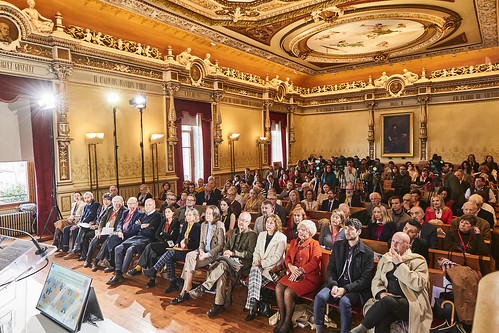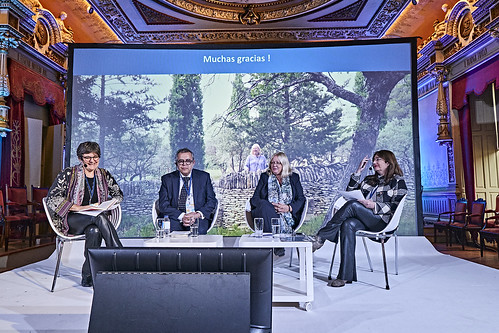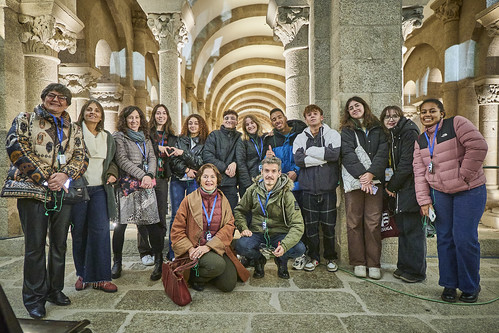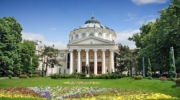Hispania Nostra organises international conference in Santiago de Compostela to mark the 60th anniversary of Europa Nostra
From 9 to 11 November, Hispania Nostra – Europa Nostra’s country representation in Spain and an affiliated partner of the European Heritage Hub project – hosted the international conference “Heritage, a shared responsibility” in Santiago de Compostela. This conference marked the 60th anniversary of Europa Nostra and also the Spanish Presidency of the Council of the European Union. For three days, experts from Spain and Portugal, but also from other European and Ibero-American countries, had the chance to discuss various topics such as social participation, fundraising, journalism and youth engagement in the heritage field. Europa Nostra, Project Leader of European Heritage Hub, was represented by its Executive President, Hermann Parzinger, and Secretary General, Sneška Quaedvlieg Mihailović.

The conference’s opening remarks were made by Prof. Dr. Hermann Parzinger, who reflected on different ways of social participation and the creation of professional and activist networks whose main role is awareness raising about heritage and its vital role in today’s society.

The Secretary General of Europa Nostra touched upon the history of activism in Europe through various Manifestos and Calls to Action that Europa Nostra has launched over the last 5 years. Sneška Quaedvlieg Mihailović drew attention to the Global Call to Action urging the UN Climate Change Convention to include culture in climate policy, which was launched by artists and culture and heritage voices worldwide on 10 November, ahead of COP28 UN Climate Conference. She stressed not only the urgency of this action, but also the need of joining forces to promote cultural heritage as a vital ally in climate change policies.

The Centre Européen de Musique – an affiliated partner of the European Heritage Hub project -, was represented by its President Jorge Chaminé, who talked about the importance of music in today’s world, the place it has in our history as well as the place music has in broader concepts of democracy, intercultural dialogue and tolerance as well as human development and evolution.

Finally, on the last day of the conference, the coordinator of youth activities within the European Heritage Hub project, Jasna Popović, explained the youth participation in the project and highlighted the importance of the joint action between young heritage professionals and senior members of the consortium.

The three-day conference was dedicated not only to the Faro Convention and its implementation on the European continent, but also to reaching out and connecting with heritage professionals from Ibero-America countries whose input and perspective was shared in every round table. Furthermore, the conference was complemented by a series of visits and social events that presented tangible and intangible heritage of Santiago de Compostela and the wider Galician region.

The conference culminated with the Santiago de Compostela Manifesto, currently open for contributions (deadline: 15 December). It is envisioned to be a lasting contribution of this conference to the debate about the Faro Convention in civil society, but also to set the ground for the further development of civil engagement and empowerment in the field of cultural and natural heritage.






